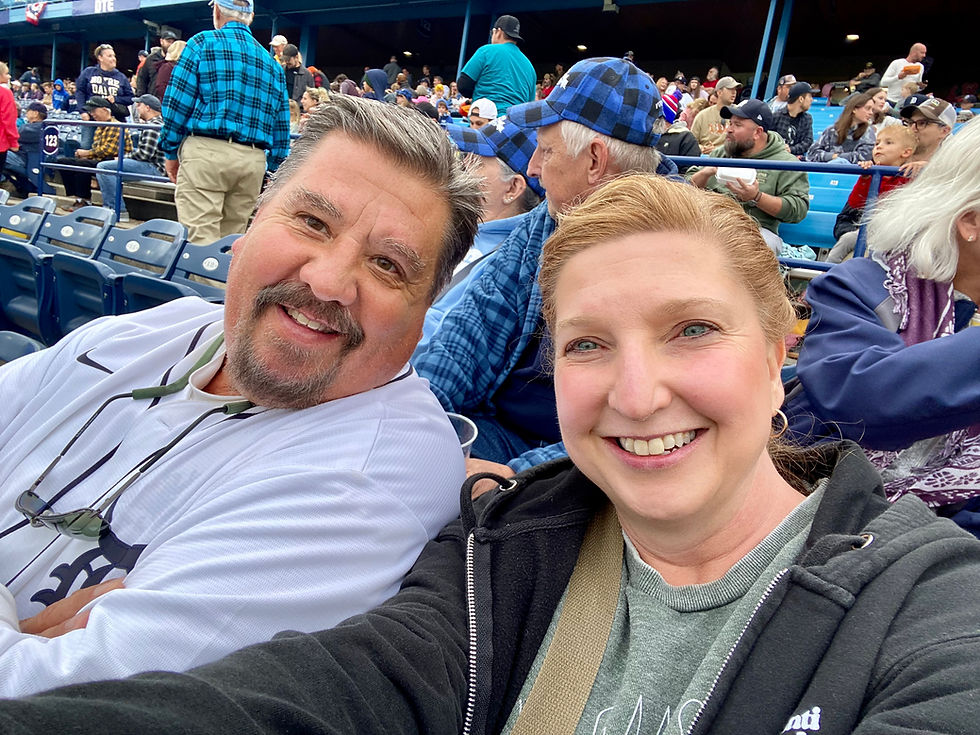I am afraid to talk about racism
- Mary Frank
- Sep 29, 2020
- 4 min read
Recent events have caused me to consider my thoughts on racism. Lucky me, being white, I can choose when to do that. That doesn’t feel good. The discrimination isn’t new. It is just now in front of us.

I didn't know what to do. I hung back, stayed quiet, and liked a few things on Facebook. But I kept getting angry at people’s hate toward other human beings because of the color of their skin. So, I argued with friends and family who denied their pain. I got sad for my friends and family. I feel helpless. I don’t know what to do or say. I am trying to learn.
I posted months ago that I started reading White Fragility; Why it’s so hard for white people to talk about racism by Robin Diangelo. Sometimes I’m reading it because I want to learn, and sometimes I read it because it makes me look like the human I want to be. I figured that out when I was at the rare hair appointment. So, I took a deep breath and tried again.
First, it is hard for me to read. The beginning is academic. I need to outline it while I read to pay attention. And then it is hard because the concepts are uncomfortable.
It is getting easier. I am breaking it into digestible bits. I want to figure out what to take with me. Ponder this, “White people in North America live in a society that is deeply separate and unequal by race, and white people are the beneficiaries of that separation and inequality. As a result, we are insulated from racial stress, at the same time that we come to feel entitled to and deserving of our advantage. Given how seldom we experience racial discomfort in a society we dominate, we haven’t had to build our racial stamina. Socialized into a deeply internalized sense of superiority that we either are unaware of or can never admit to ourselves, we become highly fragile in conversations about race.”
Yeah. I can be with that. How about you?
I then read about prejudice, discrimination, and racism. Prejudice being the pre-judgment of someone, discrimination is an act based on prejudice, and then racism is the legal and institutional authority based on prejudice. We are all prejudiced, and we all discriminate based on what we have learned and our personal experiences. Often, we live separate from people from different cultures and backgrounds, so we have no experience. Most prejudice is invisible to us. It doesn’t mean that we are bad people or ill-intended. Trying to be “color-blind” is not possible or helpful to you or others.
Yeah, I can be with that too.
When I started posting my feelings regarding the Black Lives Matter movement and commenting on police officers not being held accountable for killing black men and women, I had many arguments and conversations with family and friends. That was when I heard “I’m color-blind” for the first time. I think that it is ignorant and denies our inherent prejudice to pretend that we are better.
I used to think, “I’m not racist. I have black friends.” Ugh – that hurts. And it should. I am glad that they still want to be my friend.
When we act differently because of our prejudice, then we are discriminating. Stuff is getting real now. I want to say I don’t do this, but that hiding again. Yes, I am uncomfortable in groups of people that do not look like me. I move away. I judge areas of my city based on how many people look like me, and I avoid them. I overcompensate when I see people of color to show that I am a good person. “I am not racist. You can tell, right?”
What else is hard to admit? A lot.
The book then describes the institutions that have been established that view whites as superior in culture and achievement. I have been supported by these institutions when others have not. School. Work. Medicine. Friends. Social groups. Neighborhoods. In an odd twist, I lived in a predominantly black area in high school. I could walk to the nearest high school but was bussed across town to the ‘better’ high school, and I was happy. I was the only white person on the bus. I was uncomfortable and kept to myself. I didn’t notice that there was no bus heading in the opposite direction full of white children. I never questioned the reasons. I didn’t think about my bus mates and their feelings.
I missed a real opportunity to learn. Instead, I was scared.
I am learning, and I have a lot left to learn. I will finish this book. I will then read the articles that ripped it apart for “talking down to black people.” Then I am going to read a few others. I will find books that will let me see real stories of people not born or raised like me. Judy Blume did not provide me with enough. I’ll buy books for new babies that offer varied stories. I will not allow hate speech, prejudice, or discrimination to go unchallenged. I will stand and march and plant signs in my yard. I will vote to support new voices. And then, I bet, I learn that I missed a lot and said the wrong thing. I hope that I will be given the grace to keep learning.
Thank you to those that are giving me grace. You have already done enough and owe me nothing.






Comments